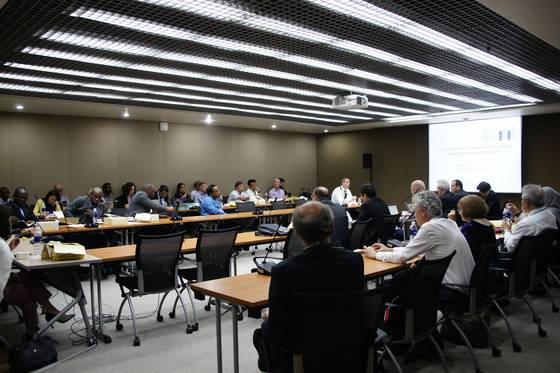The second GIZ side event during the OEWG in Bangkok focused on how to assess the climate benefits of energy efficiency. The side event with over 40 different stakeholders introduced different methodological approaches as well as practical examples from the perspective of RAC appliance manufacturers.
Acknowledging the importance of energy-related emissions on the overall climate impacts of RAC appliances, the Parties to the Montreal Protocol have requested the Executive Committee "to develop cost guidance associated with maintaining and/or enhancing the energy efficiency of low-GWP (global warming potential) or zero-GWP replacement technologies and equipment, when phasing down HFCs (...)"[1].
In light of this demand, the side event - organized by Proklima of the GIZ and funded by the Federal Ministry for Economic Cooperation and Development (BMZ) - gave an overview of methodological approaches as well as practical examples from the RAC manufacturers Carrier (opens in a new window) and Midea (opens in a new window). Participants engaged in a lively discussion and agreed that assessing climate impacts of energy efficiency was an important but difficult task, as it demands the consideration of many parameters that vary significantly from case to case and country to country.
[1] Kigali Decision XXVIII/2, Paragraph 22

